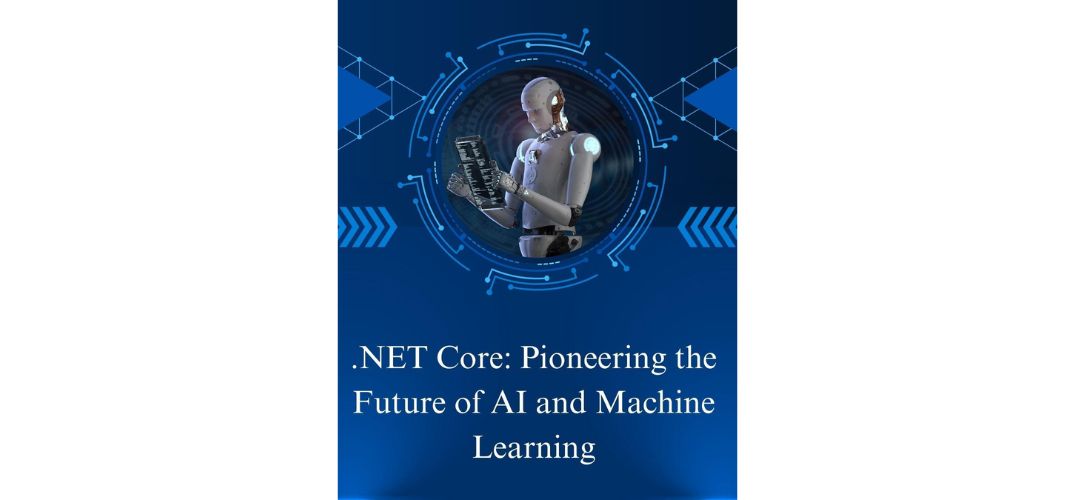By blending the efficiency of .NET Core with groundbreaking advancements in Machine Learning (ML) and Artificial Intelligence (AI), Jagdip Keshavlal Jadav explores a transformative evolution in software development. Highlighting innovations in generative AI, ML.NET, and Microsoft’s integration frameworks, the article underscores how .NET Core empowers developers to redefine intelligent applications.
Revolutionizing ML.NET: A New Era of Machine Learning
ML.NET has emerged as a game-changer for integrating machine learning seamlessly into .NET applications. The latest Version 3.0 brings groundbreaking enhancements, including deep learning support through PyTorch and ONNX Runtime, enabling the use of state-of-the-art models with billions of parameters. These updates have significantly boosted performance, reducing training times by 40% and accelerating model inference, all while handling datasets larger than 100GB. With capabilities spanning natural language processing, image classification, and automated pipeline optimization, ML.NET empowers developers to create advanced AI-driven solutions efficiently. These improvements cement its position as a powerful, scalable, and accessible framework for modern machine learning needs.
Generative AI: Seamless Integration for Intelligent Applications
The release of .NET 8 marks a transformative leap in integrating generative AI into enterprise applications. Native Ahead-of-Time (AOT) compilation and optimized cloud-native patterns have drastically improved performance, cutting boilerplate code by 40% and reducing startup times by 20%. With the inclusion of the Semantic Kernel SDK, .NET 8 offers a powerful orchestration layer for interacting with large language models (LLMs). This enables capabilities like natural language understanding, dynamic content generation, and streamlined AI deployment. These enhancements position .NET Core as a leading platform for building scalable, AI-powered solutions tailored to the evolving needs of modern enterprises.
Microsoft.Extensions.AI: Simplifying AI Development
Microsoft.Extensions.AI introduces a robust and unified framework for seamlessly integrating AI capabilities into applications. With standardized interfaces like ITextGeneration and IPromptTemplate, developers can easily switch between AI providers, including OpenAI and Azure Cognitive Services, without extensive code changes. This flexibility enables adaptability to diverse AI solutions. The framework includes built-in middleware for critical tasks such as retry logic, resource disposal, and telemetry, ensuring reliable performance in production environments. By providing an abstraction layer that simplifies complex AI integration, Microsoft.Extensions.AI empowers developers to build scalable, intelligent applications with ease, while maintaining high performance and operational efficiency.
Expanding AI’s Reach: Diverse Applications Across Domains
.NET Core’s AI capabilities make it a versatile platform for cutting-edge applications in natural language processing (NLP), computer vision, and audio analysis. By integrating Azure’s language services, developers can create NLP solutions that offer real-time performance with response times under 300 milliseconds, even during high traffic, enabling seamless conversational AI and advanced text analysis. In computer vision, .NET Core supports high-accuracy tasks like image recognition and object detection, achieving over 90% precision in complex use cases. Additionally, its robust audio analysis tools empower applications with features such as speech recognition and sentiment analysis, delivering minimal latency and reliable results. This broad functionality makes .NET Core an indispensable tool for industries embracing scalable, AI-powered innovations.
A Thriving Community and Robust Educational Support
.NET Core’s remarkable success in AI is bolstered by Microsoft’s commitment to education, innovation, and community engagement. Through platforms like Microsoft Learn, developers access interactive AI learning paths enriched with practical, hands-on labs, which achieve impressive completion rates of up to 72%. This approach ensures that learners not only acquire theoretical knowledge but also develop real-world skills. Events like .NET Conf 2024 attract over 80,000 developers worldwide, offering a dynamic environment for collaboration and knowledge sharing through expert-led sessions, live coding demos, and panel discussions. These initiatives nurture a thriving ecosystem that keeps developers at the forefront of AI advancements. By pairing cutting-edge tools with a robust support network, Microsoft empowers developers to harness the full potential of .NET Core for transformative AI solutions.
In conclusion, Jagdip Keshavlal Jadav highlights that the .NET Core ecosystem exemplifies how strategic innovation can empower developers to effortlessly create intelligent applications. By integrating cutting-edge AI technologies, optimizing performance, and fostering a thriving developer community, .NET Core sets a benchmark for future-ready platforms. Its advancements promise a future where AI-driven development is accessible, efficient, and transformative.



































